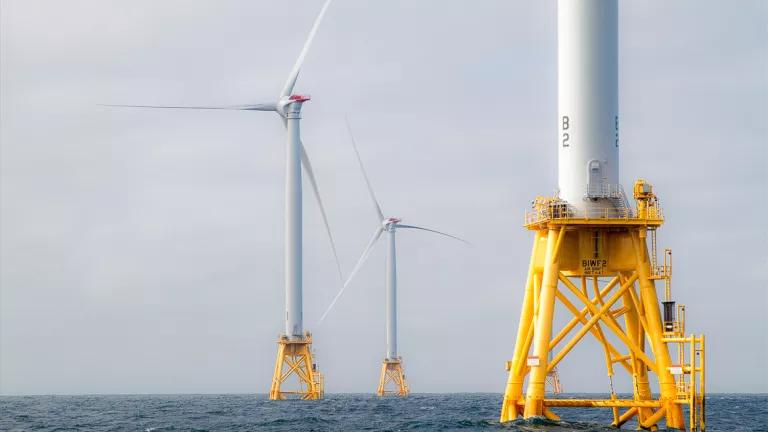Charging Ahead: Siting EV Charging Stations in Hyderabad
Experts come together in Hyderabad to discuss optimal EV charging locations to advance electric mobiity, clean air and economic growth.

Hyderabad EV charging station.
Co-authored with Rajkiran Bilolikar and Charu Lata
With a rapid transformation in electric mobility, over 15 states in India are moving forward with electric vehicle (EV) plans. Shifting to EVs also helps reduce India’s chronic air pollution problems and climate emissions while supporting COVID-19 economic recovering efforts. For the shift, a strong public charging system is needed to support robust EV use. Telangana is moving forward with siting 138 charging stations in its capital city, Hyderabad. To kickstart the effort, a group of stakeholders came together this week to build consensus on optimal locations.
Under the national Faster Adoption and Manufacturing of (Hybrid &) Electric Vehicles (FAME II scheme), the Department of Heavy Industries approved setting up nearly 180 EV charging stations in Telangana. A crucial question is “where” to site the stations to ensure that charging stations are easily accessible and to improve the cost economics and utilization of the stations. The type of chargers installed is also critical to meeting customers’ needs. The locations of the initial chargers needs to stimulate further growth and adoption of EVs in Telangana.
The Telangana State Renewable Energy Development Corporation (TSREDCO) is the state nodal agency assigned with setting up EV charging stations. To gather inputs from government departments, electricity distribution companies, charging service providers, among others, TSREDCO held a virtual discussion this week. NRDC and partners, the Administrative Staff College of India (ASCI), World Resources Institute, and Climate Trends served as knowledge partners for the workshop.
During the workshop, TSREDCO outlined that the space of each charging station is 460-500 ft2. The potential locations are all on government land and include: the entry and exit points of outer ring roads; near toll buildings; outside public parks and distribution company substations. The purview of tentatively selected locations comes under the Hyderabad Metropolitan Development Authority (HMDA), the Greater Hyderabad Municipal Corporation (GHMC) and the Telangana utility companies, Telangana State Southern Power Distribution Company and Telangana State Northern Power Distribution Company.
The three implementing agencies installing the EV chargers in Hyderabad are Rajasthan Electronics & Instruments Ltd (REIL) with 37 chargers, the National Thermal Power Corporation (NTPC) with 32 chargers, and Energy Efficiency Services Limited (EESL) with 49 chargers. Based on an initial feasibility study and survey, the three agencies have selected approximately 50 locations for installation and the balance are in progress. The EV charger configuration includes: 1) 122kW charger with three guns (50kW CHAdeMO + 50kW CCS + 22kW AC type 2); 2) Bharat DC 001 (15kW, single gun) and 3) Bharat AC 001 (10kW, 3 guns of 3.3 kW each).
Starting with state government vehicles, the Telangana government plans to approve a program for 500 EVs over the next three years for government departments. TSRECO announced a draft empanelment tender to invite bids for monthly EV rentals to government departments. The bids are geared toward fleet operators, travel agents, and taxi owners.
Workshop Takeaways
- For optimal siting, stakeholders highlighted that key considerations include safe 24-hour access to all drivers; high visibility of chargers with multiple overlapping locations to avoid range anxiety; close proximity to services, such as restaurants, offices and shopping complexes; and that the chargers are on a connected platform for customer convenience.
- For utilities, the distribution companies emphasized that EV charging stations have a discounted 6 Rs./kWh ($.08) daytime rate and 5 Rs./kWh ($.06) off peak rate as compared to the 11 Rs./kWh ($.15) standard rate and discussed plans to support EV charging stations by providing connection releases and special services to address EV issues as part of their customer management.
- For buildings, city officials indicated that EV charging stations will be located in all government buildings, including HMDA parking lots and district collector buildings in the state, as well as, commercial buildings as part of the Energy Conservation Building Code and potentially high-rise residential buildings.
Moving to electric vehicles is a major opportunity for the Indian economy to reduce air pollution, save energy, and reduce carbon pollution. State action supporting charging infrastructure deployment is an essential element to advancing electric mobility in India. Hyderabad is leading the way in working with stakeholders to advance e-mobility in India.
Rajkiran Bilolikar is an Associate Professor with the Administrative Staff College of India in Hyderabad. Charu Lata is an electric mobility expert working with NRDC as a consultant based in New Delhi.



